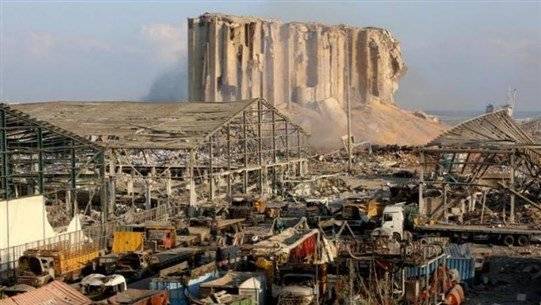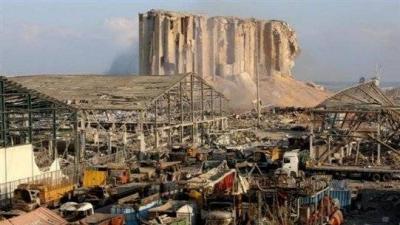Two years since August 4, 2020, the same uncertainty persists, as the lingering and obvious questions since the moment the explosion rocked the Beirut port resonate without any answers: Who brought in the ammonium nitrate? Who owns it? Did it explode due to fermentation factors? Did someone ignite a fire? Was the explosion the result of an attack?...
In light of this issue, calls for an international investigation have intensified. Will an international investigation succeed where the local investigation has failed? A judicial authority, through "Akhbar Al-Yawm," states that this "no answer" is the result of a politicized investigation from the outset. They say: From the appointment of the first investigative magistrate, Judge Fadi Sawan, there was an AVANT PROJET (preparatory project) aimed at wrapping up the investigation to close the case. This path did not continue due to pressures, leading to the appointment of the second investigative magistrate, Tarek Bitar.
The authority asks: Regardless of whether Bitar's method of operation is correct or not, there are two fundamental questions to determine if we need an international investigation.
First: Why does no country provide us with any aerial photos useful to the investigation, assuming the explosion is internal, and thus will the countries that did not cooperate with the Lebanese investigation cooperate with an international one, or will the reasons that prevented the unveiling of aerial photos still persist?
Second: After the investigative mechanism stopped for some reason (political or judicial...), did it become clear that the PLAN or the strategy devised by Bitar failed?
The authority adds: If the explosion was internal, this investigator should have what is known as FOR SEEING, meaning he should identify the type of plan that leads to results, rather than stubbornly adhering to his opinion without deviating even a little, meaning he should have multiple options to resort to. If he finds a path obstructed or blocked, he must take another that leads to the truth. In the end, what matters to the people and the victims is reaching a conclusion.
While criticizing the lack of experience in the current judicial body, the authority believes that the plan devised in the port explosion investigation, from the first investigator to the second, has placed the state in confrontation with the people and politicians against the families of the victims, meaning it is a failure leading nowhere, especially since the judicial failure has empowered the politicians.
In response to a question, the same authority states: Judge Bitar could have questioned the accused politicians without resorting to arrest warrants and, after finishing the investigations, issue his indictment and issue absentia arrest warrants and inform Interpol, adding: Everyone fell into the trap due to the plan set by the investigator, who knows he cannot currently arrest any politicians due to the structure in the country, so he should have deferred this step to the final stage.
Regarding the international investigation, the authority merely refers to the international court regarding the assassination of former Prime Minister Rafik Hariri, asking whether it achieved what it was supposed to. They conclude: Delayed justice is equivalent to "no justice"!




